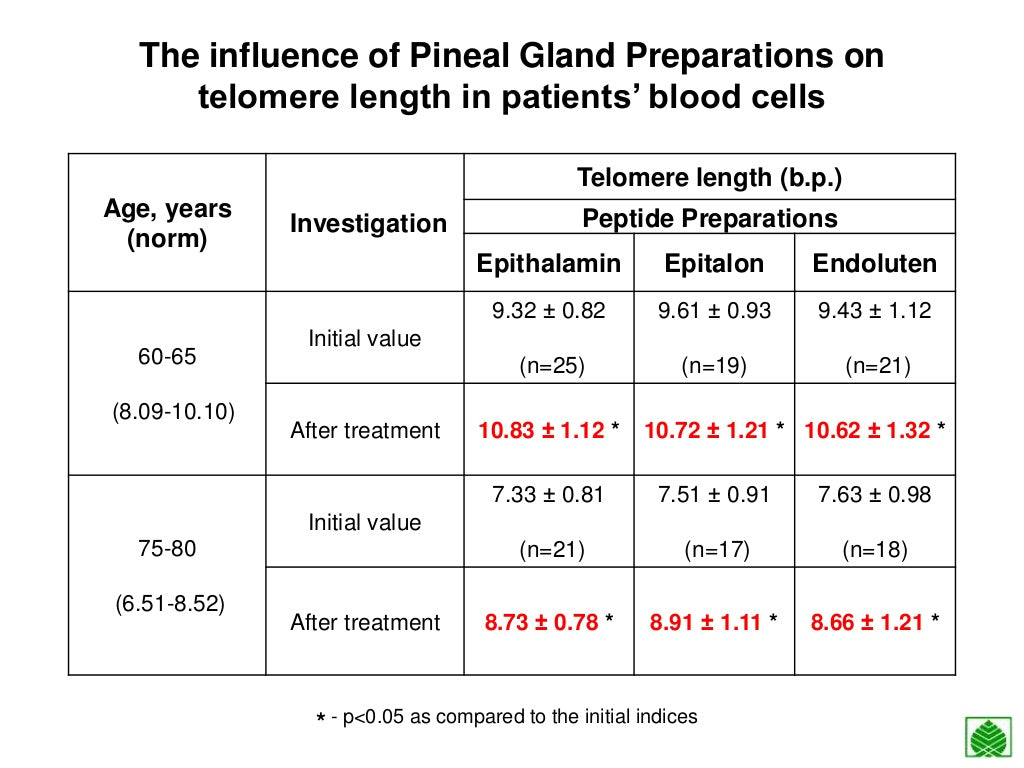Endoluten (Neuroendocrine system)
Endoluten is a dietary supplement with natural pineal gland peptides. It normalizes the function of the pineal gland by reducing its peptide deficiency and restoring protein synthesis inside its cells.
A person’s lifespan depends greatly on the health of this gland, because it regulates all cyclic processes in the body by secreting melatonin. The pineal gland peptides have beneficial effects on the neuroendocrine, immune, cardiovascular, and reproductive systems, as well as carbohydrate metabolism, sleep, bone marrow, bones, and joints. Endoluten can also lengthen telomeres, the “protective caps” of chromosomes, and increase the Hayflick limit, the number of times a human cell can divide before cell division stops.
Pineal gland malfunction that comes with age may lead to cancers, cardiovascular diseases, diabetes, depression, peptic ulcers, sexual disorders, and other illnesses.
Prof. Khavinson considers Endoluten to be the most effective product available for preventing premature aging and increasing the lifespan. It is recommended for everyone over 35–40, especially people with high stress levels, night shift workers, sportsmen, women with menopausal syndrome, and cancer patients.
Endoluten can be easily combined with other supplements and medicines and should be used in addition to conventional medical treatments.
Ingredients: pineal gland peptides, capsule shell (hydroxypropyl methyl cellulose, purified water, carrageenan, potassium acetate), flowing agent calcium salt of stearic acid.
Directions: 1–2 capsules two to three times in the mornings. Duration: 1 month. Repeat every 3–6 months.
Additional information:


The clinical study of Endoluten
Peptides of pineal gland and thymus prolong human life
The role of pineal gland in breast cancer development
Pineal peptides restore the age-related disturbances in hormonal functions of the pineal gland and the pancreas
Effects of pineal peptide preparation on free-radical processes in humans and animals
Effects of Bioactive Factors of the Pineal Gland on Thymus Function and Cell Composition of the Bone Marrow and Spleen in Mice of Different Age



